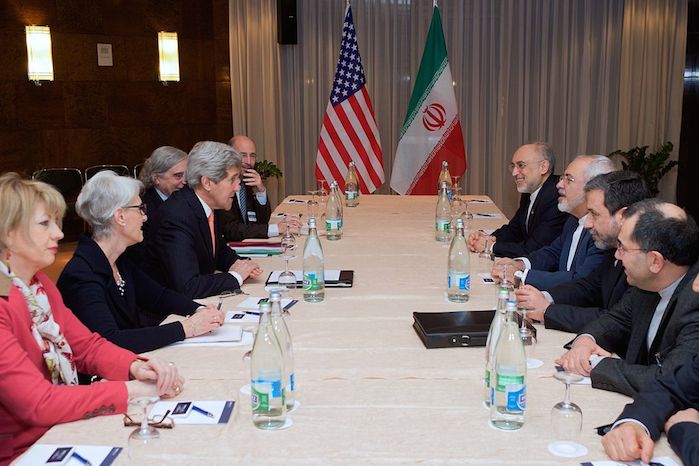The U.S. Can’t ‘Get’ Iran to ‘Shut Down’ Its Nuclear Program

A new Gallup survey shows that most Americans don’t want war with Iran. Only 18% of all American adults favor military action against Iran, and even among Republicans that number is just 25%. 78% favor economic and diplomatic efforts. That’s fine as far as it goes, and it shows that there is very little support for a new war at this time. The framing of the question is the bigger problem and makes the results from the poll much less useful.
The poll asks, “What do you think the United States should do to get Iran to shut down its nuclear program — take military action against Iran, or rely mainly on economic and diplomatic efforts?” The question assumes that it is within our government’s power to “get Iran to shut down its nuclear program,” when the experience of the last twenty years tells us that it is not. The nuclear negotiations that produced the JCPOA show beyond any doubt that there are limits to what Iran is willing to concede on this point. It is good that most Americans prefer non-military options to pursue this fantastical goal, but the assumption that Iran will one day “shut down” its nuclear program is completely unrealistic. On the contrary, the more pressure that the U.S. puts on Iran in an attempt to force such a shutdown, the more inclined Iran’s government is to build up its program.
If Iran’s nuclear program remains peaceful, there is no need for them to shut it down. The long-term goal of the JCPOA has been to demonstrate to the satisfaction of all parties that Iran’s nuclear program is and will remain peaceful, and then at that point Iran will be treated like any other member of the Non-Proliferation Treaty (NPT). The U.S. doesn’t need to do anything to “get” Iran to do this because the goal of shutting down the program is a foolish and impossible one. Perceiving Iran’s possession of a peaceful nuclear program as a problem to be solved is one of the reasons why our debate over Iran policy is so warped and biased in favor of coercive measures. The idea that Iran has to “shut down” a program that it is legally entitled to have under the NPT is bizarre, but it is obviously a common view here in the U.S.
The question is misleading in another way, since it suggests that military action could be effective in forcing Iran to “shut down” the program. In reality, attacking Iran’s nuclear facilities would at most set back the program, but it would give the Iranian government a strong incentive to develop and build a deterrent that would discourage the U.S. from launching more attacks in the future. Attacking a country when it doesn’t have nuclear weapons is a good way to encourage them to acquire those weapons as quickly as possible.
That makes the results to the follow-up question all the more dispiriting. The poll also asks, “Suppose U.S. economic and diplomatic efforts do not work. If that happens, do you think the United States should — or should not — take military action against Iran?” Once again, the question assumes that getting Iran to “shut down” its nuclear program is both a legitimate and realistic goal. If non-military measures “do not work,” there is additional support for military action from a depressing 42% of those who initially favored “economic and diplomatic efforts.” Put them together with the initial supporters of military action, and you have a narrow majority of all American adults that thinks the U.S. should take military action:
The 42% of those who favor military action if nonmilitary efforts fail translates to 35% of all U.S. adults. Combining that group with the 18% who favor military action outright means a slim majority of Americans, 53%, would support military action against Iran if diplomatic and economic efforts are unsuccessful.
There is a disturbingly high level of support for launching an illegal attack on another country for something it is legally permitted to have. The assumption that “economic and diplomatic efforts” will be “unsuccessful” if they don’t force Iran to abandon its nuclear program helps to push respondents to give that answer, but they wouldn’t endorse a military option if they hadn’t been led to think that Iran’s nuclear program is an intolerable danger. That is partly because of the bad framing of the questions, but it is also a product of decades of relentless propagandizing about a supposed threat from Iran’s nuclear program that is completely divorced from reality. We need better poll questions on this subject, but we also need better, more informed debate about Iran and we have to stamp out the threat inflation that poisons and distorts the public’s perceptions of threats from other states.
Comments